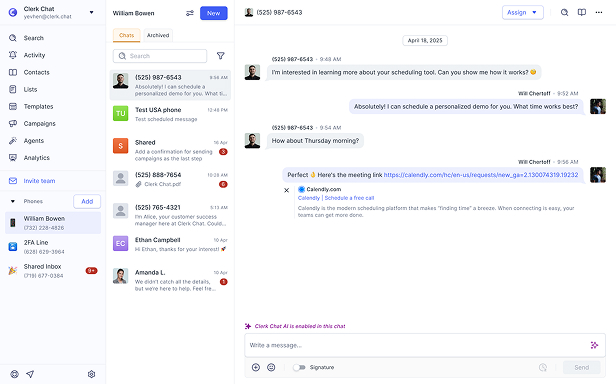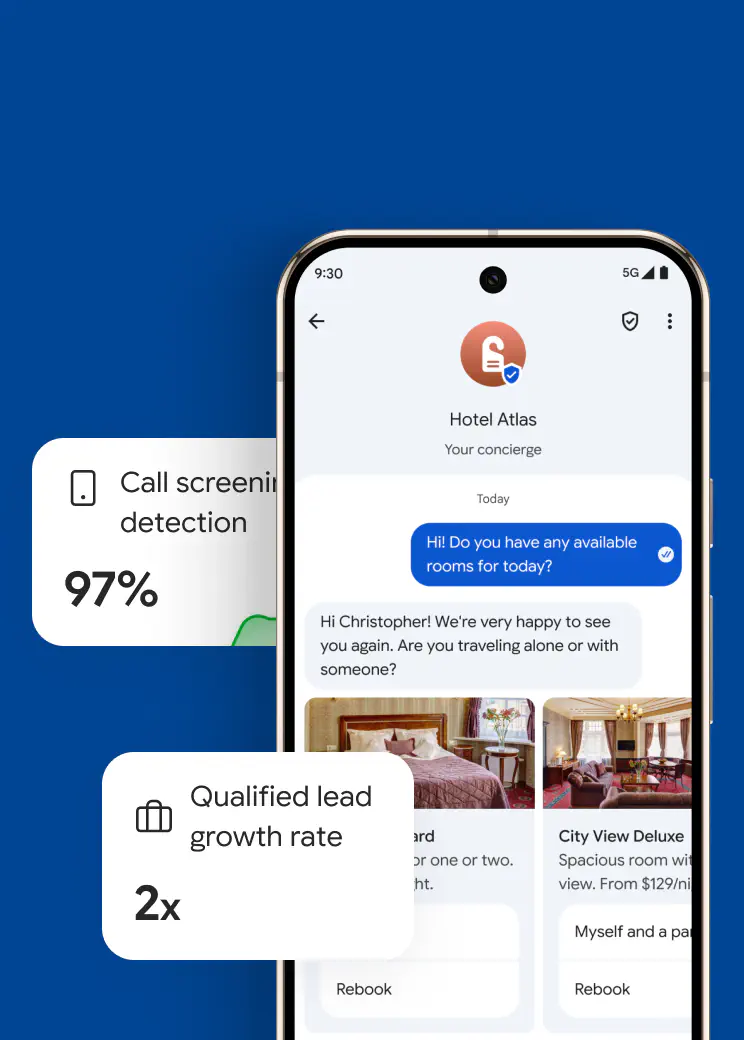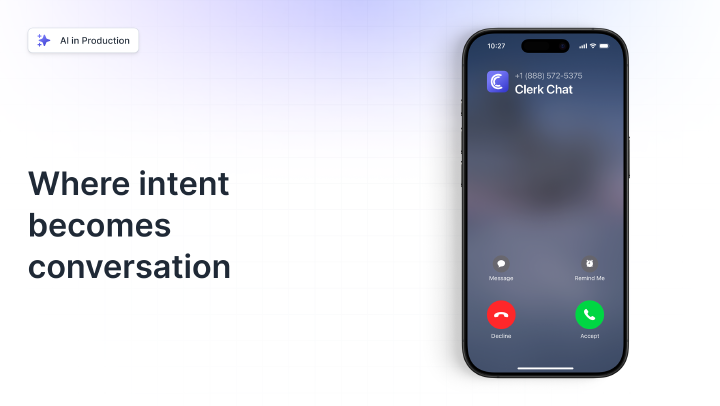What is Bring Your Own Carrier (BYOC), and How Does it Benefit Your Business?
By Team Clerk Chat
- Published: October 16, 2024
Free 10DLC Whitepaper
Bring your own carrier (BYOC) solutions for cloud communications have grown increasingly popular in recent years. Companies are rapidly migrating their communication solutions to the cloud, in search of greater scalability, agility, and flexibility.
However, not every organization transitioning to the cloud wants to abandon the contracts they have with existing telephony vendors and carriers. BYOC solutions allow companies to connect their existing telephony services to their cloud ecosystem.
This means business leaders can preserve relationships with existing partners, potentially reducing transition and migration costs. Plus, BYOC solutions can empower organizations to enhance their communication strategy with advanced features and services not offered by standard cloud communication platforms.
Here’s everything you need to know about “Bring your Own Carrier” services, their benefits, and how you can use them to streamline your transition to the cloud.
What Does BYOC Mean? Defining BYOC
BYOC stands for “Bring your Own Carrier.” It’s a method of allowing businesses to choose the carrier they want to work with to link their unified communication tools and cloud platforms to the Public Switched Telephony Network (PTSN).
Companies that want to transition their communication technologies into the cloud, taking advantage of the scalability, agility, and cost-savings a cloud strategy can offer can choose to take advantage of the phone services offered by cloud leaders. For instance, Microsoft offers calling plans for Microsoft Teams that enable cloud-first communications.
However, the built-in PSTN offering provided by some vendors may not be ideal for every organization. Microsoft Teams’ calling plans, for instance, offer limited geographic reach, and can make it difficult to access advanced features, like SMS functionality.
The “Bring your Own Carrier” approach ensures companies can choose the telecommunications company that suits their needs best as they move to the cloud. They can transition call controls to the cloud, while preserving the existing features and toolkits they need to empower their workforce.
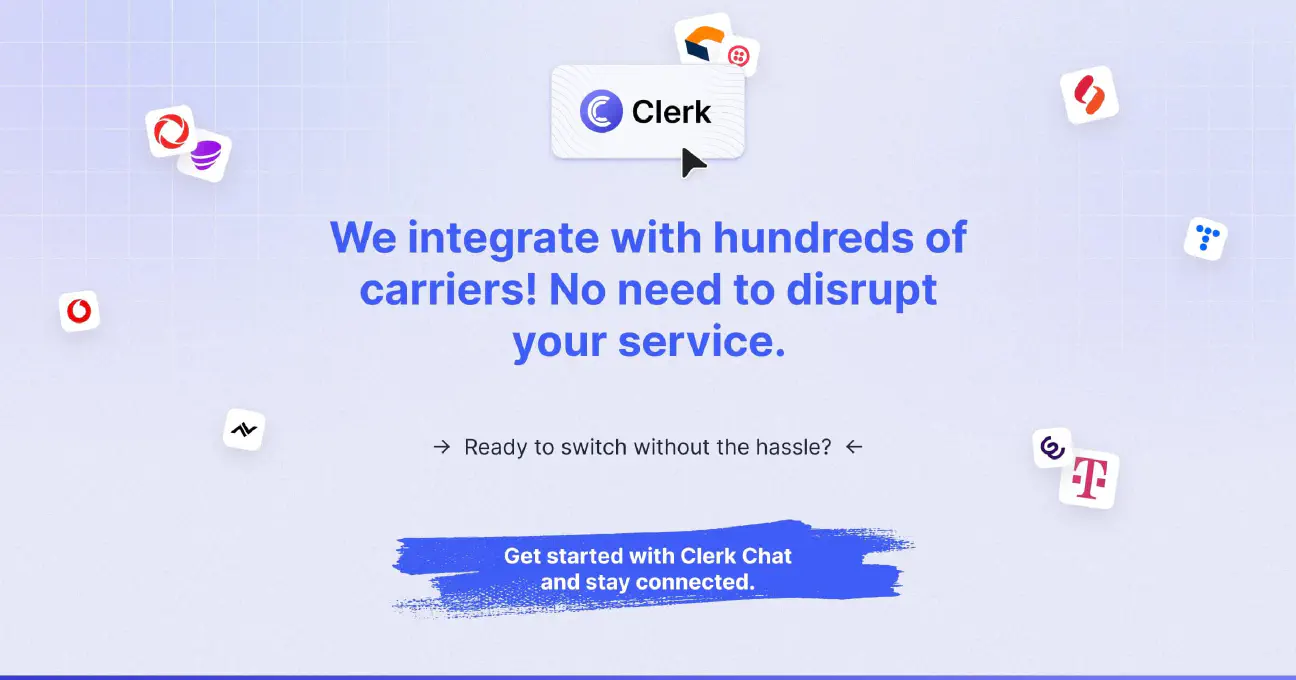
How Does Bring Your Own Carrier Work?
There are various different types of “Bring your Own Carrier” solutions available today. For companies who want to use Microsoft Teams as their central hub for communications, for instance, Direct Routing and Operator Connect are two great “BYOC” options.
Both of these strategies allow companies to connect their Microsoft Teams instance to the PSTN, with the help of their preferred carrier. They both leverage similar technologies, such as SBC (Session Border Controllers), and SIP trunking, to bridge the gap between offline and online technologies.
They also enable similar services, like the ability to port a phone number into the cloud, enable VoIP and non-VoIP calling, and manage communication systems remotely.
Often, the biggest difference between Bring Your Own Carrier solutions, is how much support your carrier provides. For instance, with Operator Connect, or Microsoft Teams direct routing, carriers are responsible for configuring SIP trunks, and handling maintenance.
With standard Direct Routing services, on the other hand, and other forms of BYOC services, the company leveraging the technology is responsible for all maintenance and configuration tasks.
The Benefits of Bring Your Own Carrier Solutions
Bring your Own Carrier services allow companies to choose an SIP trunk provider and carrier to provide the central layer of their communications stack in the cloud.
They ensure companies can reuse and repurpose existing carrier contracts, dial plans, on-premises session border controllers, and even advanced communication features, like business messaging services. This can save companies significant time, effort, and money during a cloud migration.
BYOC also ensures organizations can customize their communication strategy to suit their specific needs, implementing the ideal strategies and tools to improve employee productivity, reduce operational costs, and even maintain compliant communications.
While the exact benefits you get from a Bring Your Own Carrier solution will vary, the most significant advantages often include:
- Cost savings: BYOC ensures companies can choose the most cost-effective carrier for their requirements. It enables businesses to take advantage of the deals and offers their current carrier can provide, and reduce the costs associated with cloud migration.
- Flexibility: With Bring your Own Carrier, you have the freedom to choose carriers that fit your requirements for everything from geographical coverage to feature sets. For instance, with Clerk Chat, you can use a BYOC solution to enable Microsoft Teams texting.
- Scalability: Businesses with a global presence can mix and match carriers to enhance their communications across countless different regions. They can also scale their communication services and features easily as their business evolves.
- Integration: BYOC enables seamless integrations between various on-premises and cloud-based communication services. You can leverage SMS integrations, voice, and other solutions in a single pane of glass environment, reducing tech stack complexity.
- Control: Bring Your Own Carrier services give companies a more comprehensive level of control over their communications stack. You can manage your relationships with carriers directly, and often manage everything through a simple, cloud-based portal.
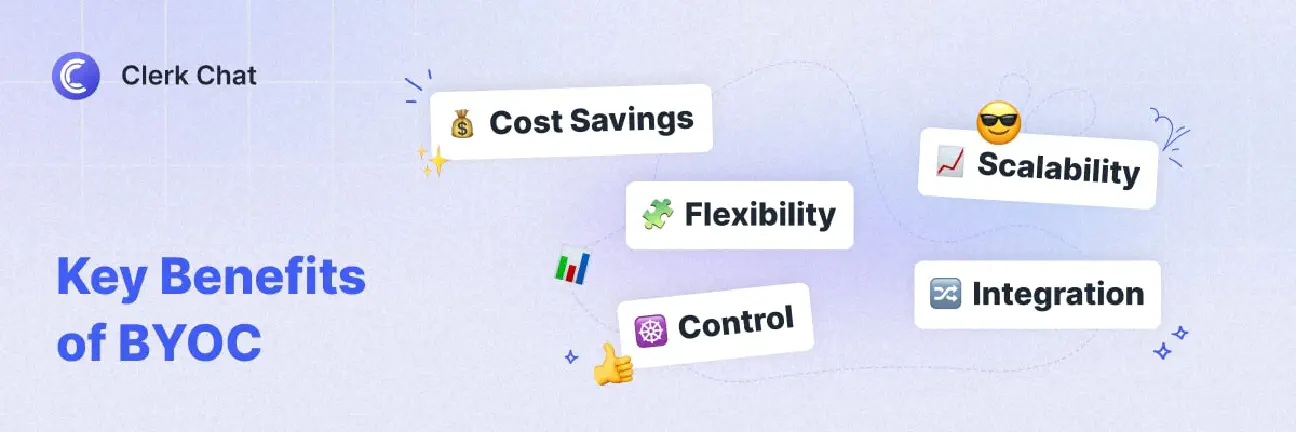
Getting Started with BYOC: Tips to Consider
Bring Your Own Carrier solutions give companies the freedom to customize and optimize their transition to the cloud. However, the success of your strategy and the return on investment you achieve will depend on the carrier you choose.
Here are some quick tips to help you implement the right BYOC strategy.
1. Consider Communication Needs
Think about what kind of communication avenues you’ll want to leverage with a BYOC vendor. Are you just looking for access to cloud voice, or do you need to enable Zoom texting, SMS, and other capabilities? Will you need your communication solutions to integrate seamlessly with pre-existing on-premises technologies and cloud-based platforms like Microsoft Teams?
Which regions do you need coverage in if you’re building a global communications strategy, and how easy will it be to scale your services? Make sure the carrier you choose can offer access to a broad range of features, as well as the ability to use different numbers, carrier options, and solutions in various parts of the world.
2. Prioritize Comprehensive Control
As mentioned above, one of the biggest benefits of Bring Your Own Carrier services is that they allow you to maintain control over your communications ecosystem. You should be able to easily configure phone systems and settings based on the needs of your employees and customers.
You should also be able to implement controls that help you to maintain compliance with communication standards, such as text message privacy rules, and 10DLC compliance. Look for a carrier that offers access to a comprehensive portal that allows you to simplify the management of your communication solutions.
3. Look for Exceptional Customer Service
As mentioned above, the level of support you get from your “Bring your Own Carrier” provider depends on which strategy you use. If you need a lot of end-to-end assistance with configuring settings and managing your technology, Operator Connect solutions typically offer more hand-holding than options like Microsoft Teams direct routing.
However, regardless of your chosen cloud migration strategy, the best vendor should work with you to help you achieve the best possible return on investment. They should offer access to comprehensive technical support, as well as guides and training resources, where possible. For instance, a great carrier might give you documents you can share with your teams that cover tips on how to text from a landline or how to monitor crucial performance metrics.


Is BYOC Right for Your Business?
A Bring Your Own Carrier solution can be an excellent way to simplify the transition to cloud telephony and maintain control over your communications strategy.
Although some companies will find it easier to simply use the calling plans built into their preferred UCaaS and CCaaS platforms, BYOC does offer a range of unique benefits. It can save you time and money during the migration process, and allow you to customize your cloud communications stack to suit your specific needs.
At Clerk Chat, we offer a flexible Bring Your Own Carrier solution perfect for companies looking to take advantage of SMS and calling in the cloud. Our platform gives you the freedom to work with the carrier of your choice, access the features you need to empower your workforce, and even innovate with AI, automation, and new communication channels.
Contact Clerk Chat today to learn more about how we can help you unlock the benefits of BYOC.
In this article:
Ready to use your business number for text messaging?
Thousands of businesses are already experiencing the power of conversational messaging through SMS. Join us. Free trial and paid tiers available.
Get Started#Subscribe
Get product updates in your inbox
Tutorials, features, and Clerk Chat news delivered straight to you.
